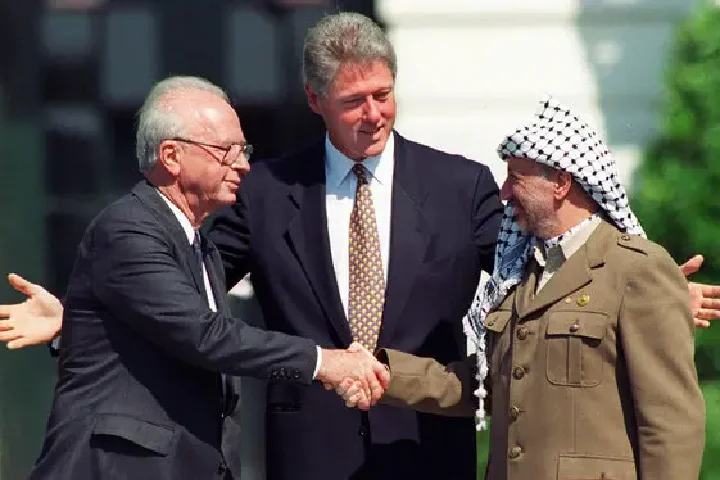The ongoing Israeli-Hamas conflict is not showing signs of de-escalation. The crisis was triggered on October 7 when Hamas, the Palestinian armed group in an operation purposely named “Al Aqsa Flood” raided Israeli cities, killed hundreds, both civilians and security personnel, and took more than hundred as hostages. Israel retaliated with full force and gory footage of casualties are appearing almost on hourly basis.
The roots of the conflict links to, most recently, events unfolded 1991 onwards (if we can take rest from volumes full of other historical background).
Stephen M. Walt, Professor of International Studies, Harvard University, wrote in his latest Foreign Policy column that “in 1991 when the United States emerged as the unchallenged external power in Middle East affairs and began trying to construct a regional order that served its interests.”
The 1991 Gulf War weakened then Iraq President Saddam Hussein as a major player in the Middle East theatre, and in its quest for a “peaceful Middle East”, Walt writes, the US, under President George H.W. Bush convened a peace conference in October 1991, which included representatives from Israel, Syria, Lebanon, Egypt, the European Economic Community, and a joint Jordanian/Palestinian delegation.
The conference failed to produce any official roadmap, it, however, laid down groundwork for further serious efforts to find a durable and solution-oriented outcome.
President Bush, Secretary of State James Baker, and an experienced Middle East team, surmises Walt, could work seriously to settle Israel-Palestinian problem had Bush been re-elected in 1992.
However, it was no setback as new White House incumbent Bill Clinton achieved the desired landmark – Oslo Accords of 1993 and 1995, or the Oslo Peace Process. Iconic photograph of Clinton rejoicing with smiling Israeli Prime Minister Yitzhak Rabin and Palestine Liberation Organisation chief Yasser Arafat still reminds people of how a high point of hope was reached and yearns to be realised till now.
The Oslo Accords was a set of treaties drafted in the light of Resolution 242 and Resolution 338 of the United Nations Security Council, and at fulfilling the “right of the Palestinian people to self-determination”.
The Accords established the PLO as the sole representative of Palestinian people and removed the “terror” tag from Arafat and other PLO leaders in popular Israeli and Western press. The PLO renounced violence in return for Israel recognising them.
The two sides agreed on the formation of a Palestinian Authority, which would govern the West Bank and Gaza for a five-year period.
It would see an independent Palestinian state established alongside the existing one of Israel — giving both people their own territories.
In 1993, the Oslo Accords were signed by the Israeli government and the PLO, heralded as a groundbreaking step towards peace.
However, 30 years on, the situation has grown more complex.
Learn more in the film, The Price of Oslo: https://t.co/kxJwTc7EPs pic.twitter.com/TzUtBdKUwd
— Al Jazeera World (@AlJazeeraWorld) October 12, 2023
The State of Palestine in the West Bank and the Gaza Strip was to be established with its capital in East Jerusalem. The Israeli army was to vacate the “populated areas” of Jewish settlers in these Palestinian areas by 1994 to facilitate the agreement.
The Oslo generated hopes, and almost equal fury. Arafat, despite him claiming that “it was the best agreement in the worst of times” and even getting sufficient support among Palestinians, was branded in extremist Arabic press as “seller of the cause”.
A large portion of the Palestinian population, including various Palestinian militant groups, staunchly opposed the Oslo Accords. Legendary Palestinian-American writer-academic Edward Said described them as a “Palestinian Versailles”.
President Rabin was assassinated by an Israeli right-wing fanatic.
Late Israeli journalist-activist Uri Avnery had blamed Rabin himself for sowing confusion about the agreement and not honouring the spirit of it. “The stage for many of the violations has been set by the famous statement of Mr Rabin, ‘No dates are sacred.’ This constitutes a blanket declaration of intent not to honour the agreement, which has, since then, been amply supported,” wrote Avnery in one of his pieces in the Palestine-Israel Journal of Politics, Economics and Culture.
The region is still finding its ‘sacred date’ of peace, for all.




















